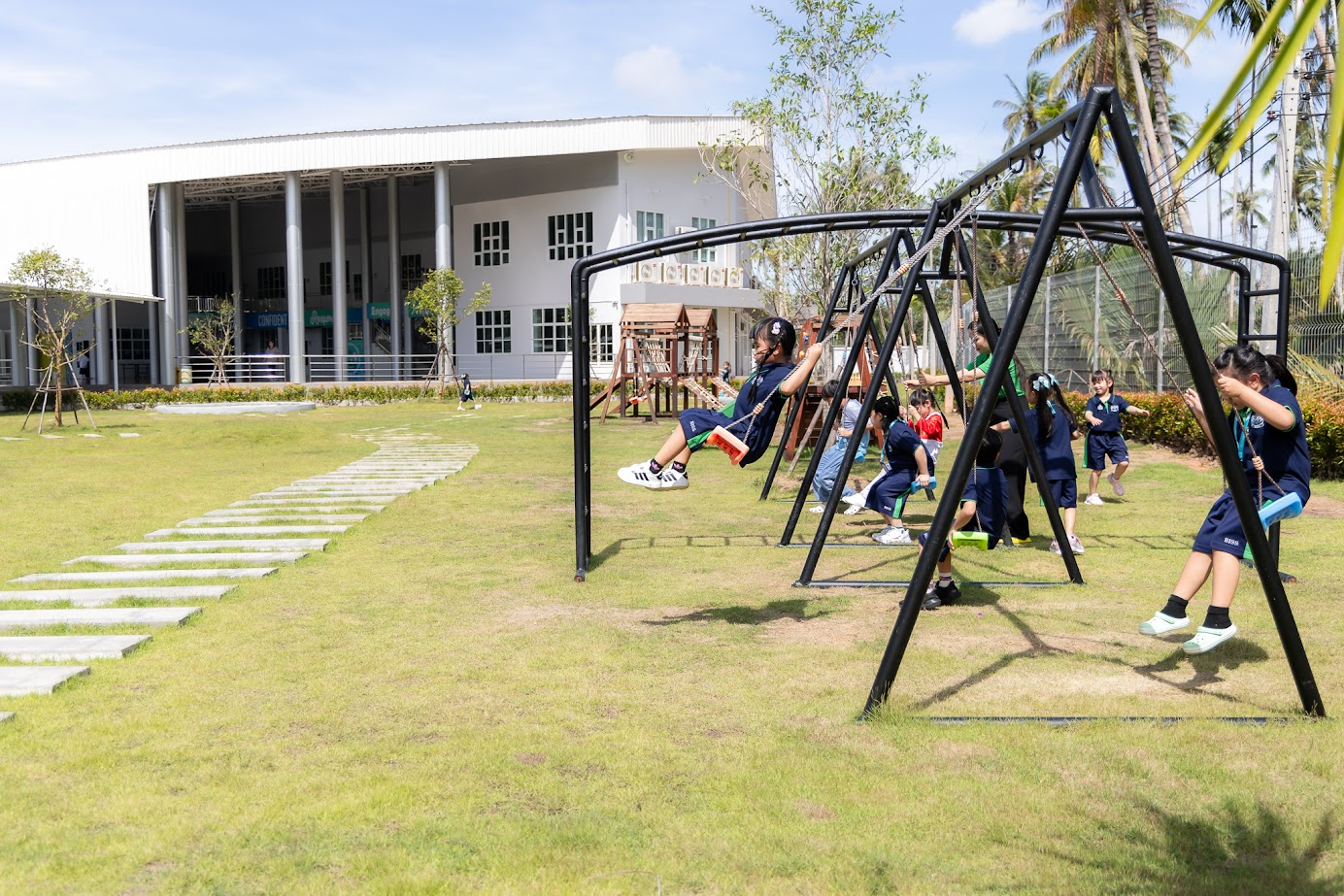Project-Based Learning
Balance continues with the Cambridge International Curriculum in the Primary Years. Moving from a play based curriculum, Balance now moves into project-based learning which emphasises active learning and the application of knowledge through projects. This approach allows students to engage deeply with subjects by working on extended, interdisciplinary projects that integrate various areas of the curriculum. The six years of students in the primary phase is divided into two sections namely: Key Stage 1 (Year 1 – 3) and Key Stage 2 (Year 4 – 6).
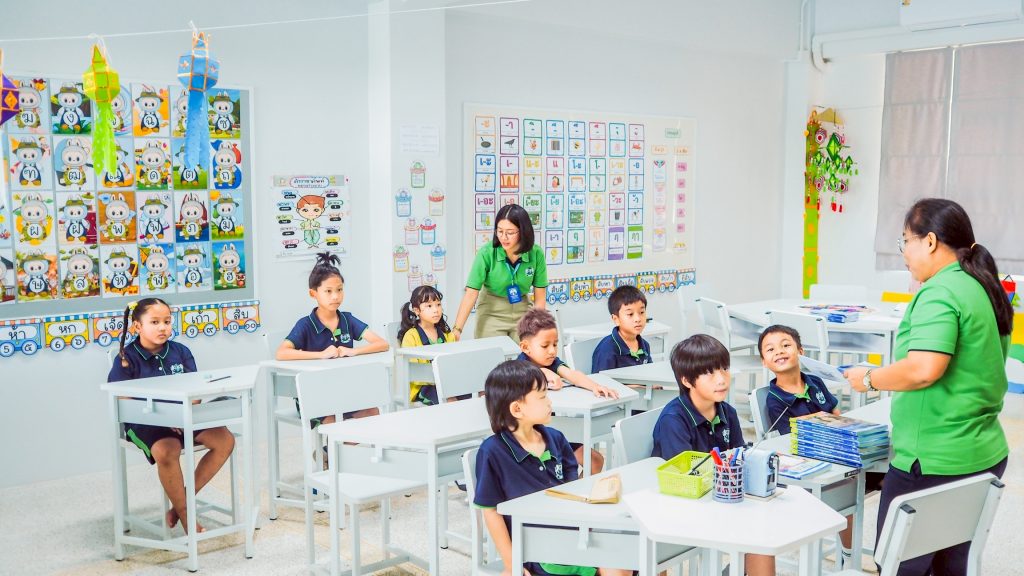
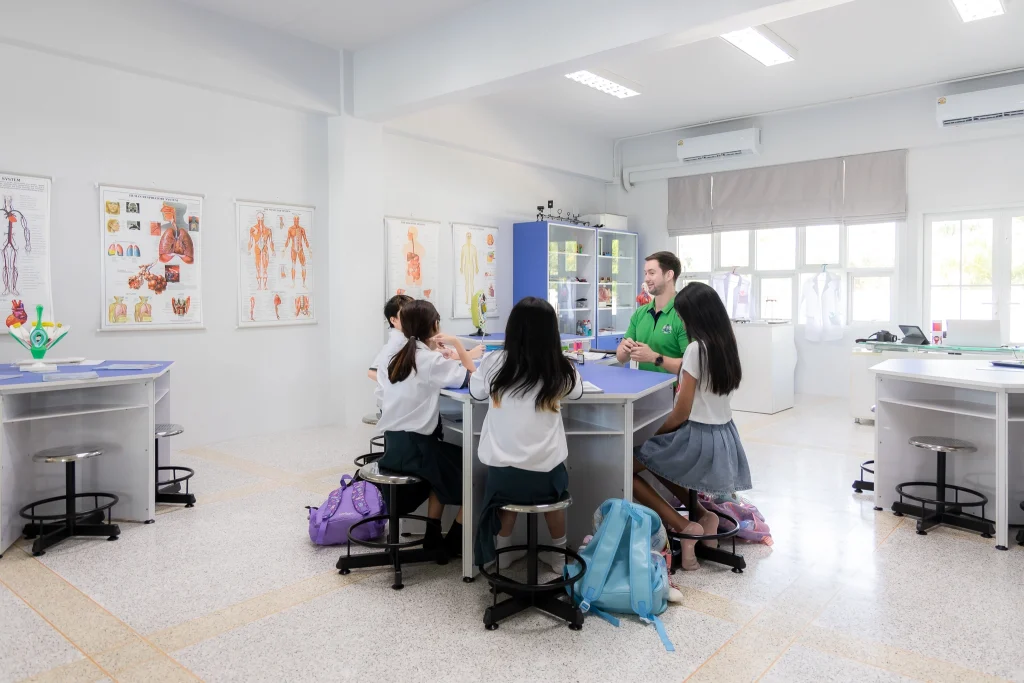
Overview of the Cambridge Primary project-based curriculum:
Students take a number of subjects and at this stage all subjects are compulsory. These are the following subjects taken at Balance:
- English
- Thai Language and Culture
- Mathematics
- Science (General Science)
- Global Perspectives
- Information Computer Technology
- Art and Design
- Modern Foreign Language (Mandarin)
- Physical Education
- Well-being
At the end of this phase and in Year 6, students will sit an external exam called a CheckPoint Examination. This is not a summative examination, but rather a diagnostic exam giving teachers, students and parents and overview of what students have achieved through Key Stage 2.
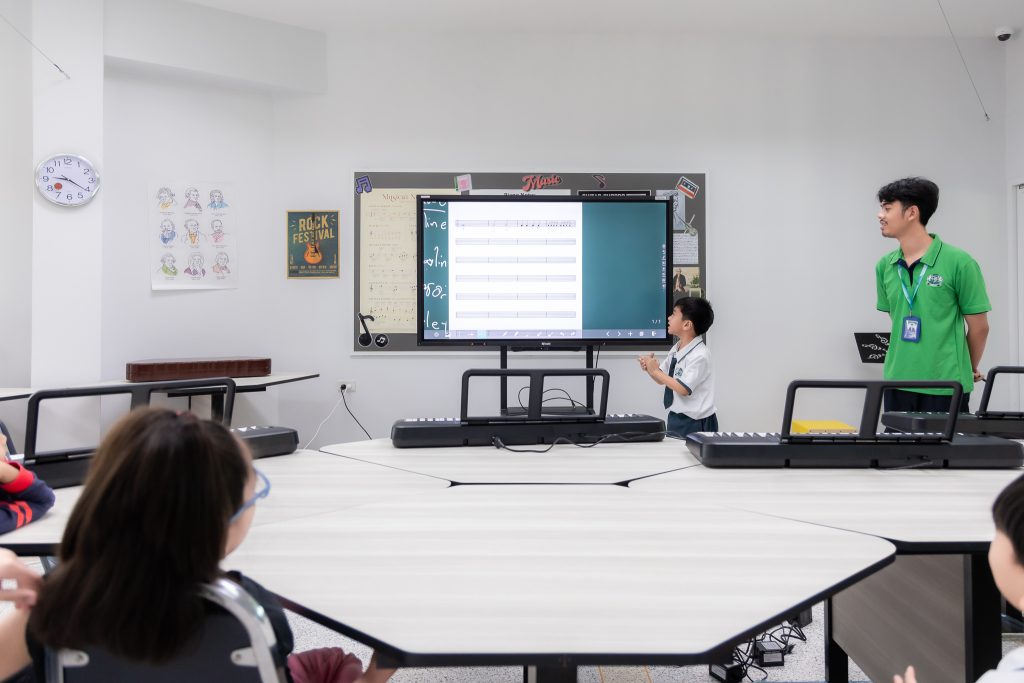
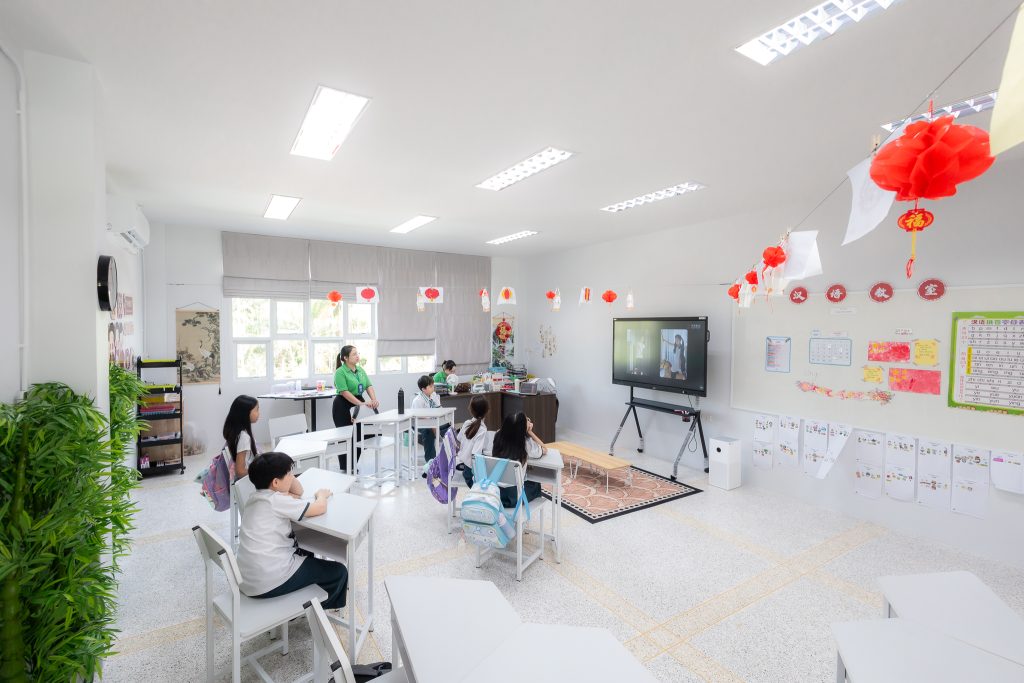
Key Features of the Cambridge Primary Project-Based Curriculum
Interdisciplinary Learning:
Projects integrate multiple subject areas such as science, mathematics, literacy, global perspectives and the arts of music and design. This helps students see the connections between different fields of study and apply their knowledge in a cohesive manner.
Student-Centred Approach:
At Balance, students take an active role in their learning by choosing project topics, planning their work, conducting research, and presenting their findings. This empowers student agency and helps them to take ownership of their education and develop autonomy.
Real-World Relevance:
Projects are designed to be relevant to real-world issues and contexts. This makes learning meaningful and engaging for students, as they can see the practical applications of their studies.
Development of Key Skills:
The curriculum focuses on developing a range of skills, including critical thinking, problem-solving, collaboration, communication, creativity, and time management.
Inquiry-Based Learning:
Students at Balance are encouraged to ask questions, investigate, and explore topics in depth. This fosters a spirit of inquiry and curiosity, promoting a deeper understanding of the subject matter.
Assessment for Learning:
Continuous assessment is integral to project-based learning. Teachers at Balance use formative assessments to monitor progress, provide feedback, and guide students’ learning journeys. Summative assessments may include project presentations, reports, and portfolios.
Collaborative Learning:
Projects often involve teamwork, allowing students to collaborate with their peers. This helps them develop interpersonal skills, learn to work effectively in groups, and appreciate diverse perspectives.
In summary, the Cambridge Primary project-based curriculum at Balance provides a dynamic and interactive learning experience that prepares students for the complexities of the modern world by integrating academic knowledge with practical, real-world application.







